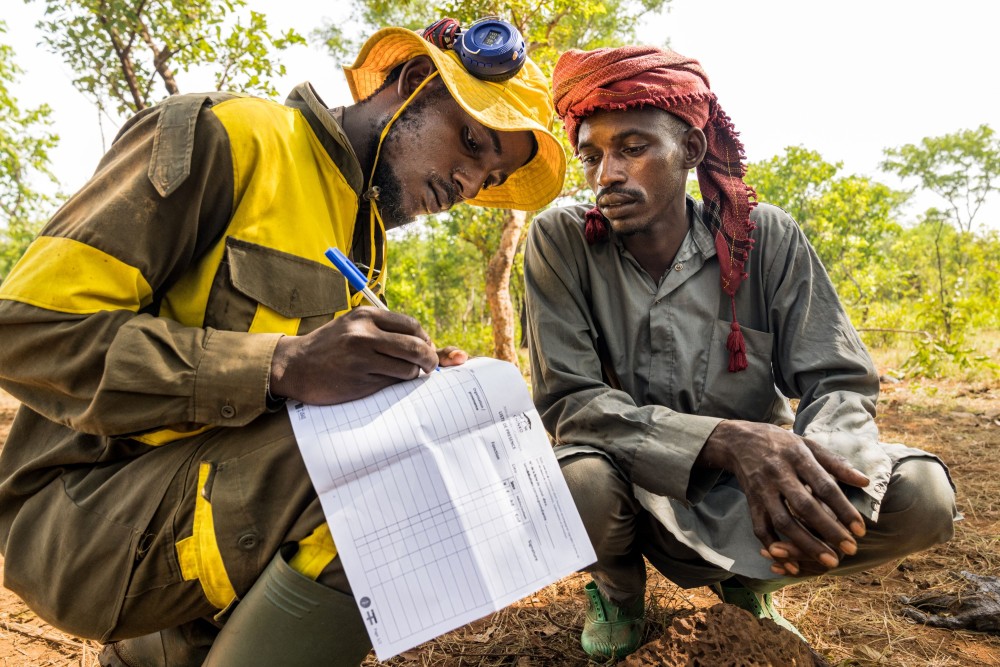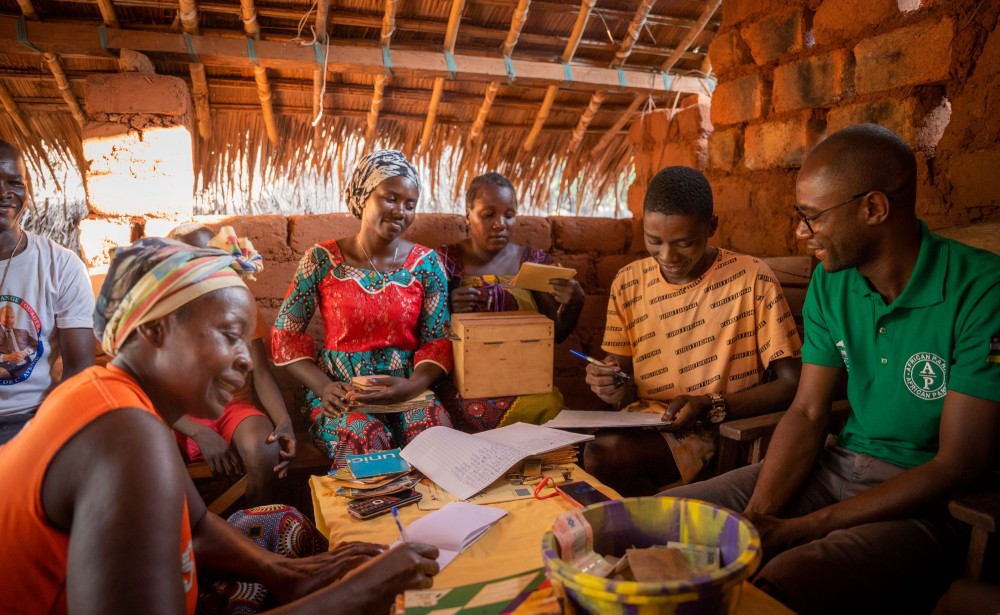The people living in the vicinity of Chinko have suffered for decades from civil war and ethnic violence. Chinko, in partnership with the government, has the opportunity to foster stability in the region while working with the surrounding communities, to promote regional development based on a better understanding of the value of wildlife.
Community Engagement

Community committee meetings are held annually, with 130 participants attending in 2022. The creation of a proposed Chinko National Park and buffer zones was discussed with local communities, technicians and authorities, all of whom support the initiative. Regional meetings with herders, local authorities and communities are convened by the team in all major transhumance locations.
Education and Environmental Awareness
One of African Parks’ key goals is to provide quality educational opportunities that support economic and social transformation while raising awareness of conservation and environmental issues. These campaigns have been well received, attracting the support of local authorities.
Environmental education is emphasised in local schools, with resources provided to pupils and teachers. In 2022, 33 primary school teachers from 18 villages received teaching support. The aim is to ultimately facilitate an attitude of change and awareness, not only securing the future of the park but also creating one where both people and wildlife can thrive.
Over 7,000 community members have been engaged with training sessions on sustainable fishing, hunting, environmental education, sustainable pastoralism, low-impact artisanal mining and participatory mapping for land use planning.
Sustainable Enterprise Development

Economic development projects for Chinko’s surrounding communities constitute the cornerstone of our work. The people of CAR are in desperate need of a sustainable form of income to improve their quality of life. Local employment opportunities have been created through the recruitment of the ranger team, and the ECHO and Tango team members.
Chinko supports agriculture revitalisation in the surrounding communities to promote sustainable livelihoods. Food and goods purchased by Kocho headquarters from surrounding communities have benefitted six communities. Fifteen market gardening groups comprising 380 people received tools and training to help improve their harvests. Nine farmer groups were trained in new crop practices. A mobile clinic offered dental care, treatment against malaria and other urgent medical care, in Djemah, Derbissaka, Ngouyo and Kitika. In 2022, Vegetable gardening is being promoted amongst groups of farmers.
Since 2020, Chinko has supported 60 Village Saving and Loan Associations to develop inclusive finance and foster income-generation activities.
